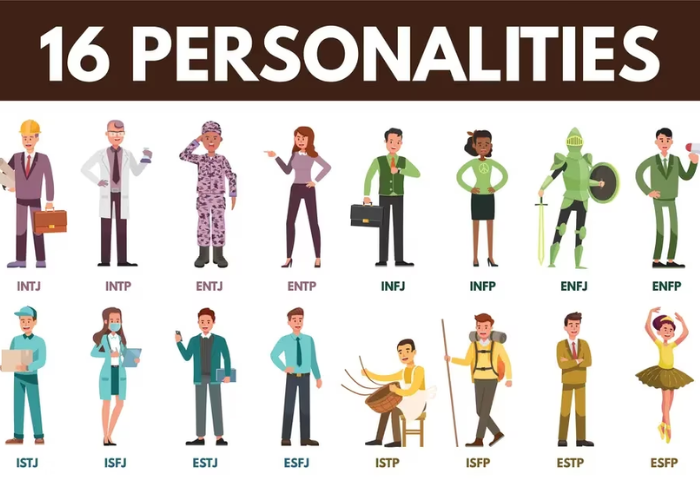Personalidades are a fascinating aspect of human behavior that shapes how we think, feel, and interact with the world around us. Each person has a unique set of traits that make up their personality, and understanding these traits can provide valuable insights into why people behave the way they do. In this article, we will explore the different personality types, the impact of personality on behavior and decision-making, and how personality influences relationships and the workplace.
Personalidades can be broadly categorized into various types, with each type characterized by distinct traits and tendencies. One popular framework for understanding personality is the Big Five Personality Traits. These traits include openness, conscientiousness, extraversion, agreeableness, and neuroticism.
Openness refers to a person’s willingness to try new things and their level of creativity. Conscientiousness is associated with being organized, responsible, and dependable. Extraversion is the degree to which someone is outgoing and enjoys social interactions. Agreeableness reflects a person’s empathy, kindness, and cooperativeness. Neuroticism is the tendency to experience negative emotions such as anxiety, depression, and mood swings.
How Personalidades affects behavior and decision-making
Our Personalidades play a significant role in shaping our behavior and decision-making processes. For example, individuals who score high in extraversion may be more likely to seek out social interactions and take risks, while introverts may prefer solitude and cautious decision-making. Conscientious individuals are more likely to plan and think ahead before making decisions, while those who are less conscientious may be more impulsive and spontaneous.
Personalidades also influence our attitudes and beliefs, which in turn can impact our decision-making. For instance, individuals with high openness may be more inclined to embrace change and novelty, while those with low openness may be more resistant to change and prefer familiarity. Similarly, those who score high in agreeableness may prioritize maintaining harmony and avoiding conflicts in their decision-making, while those low in agreeableness may be more assertive and willing to take risks.
Personalidades and relationships
Personalidades play a crucial role in our relationships with others, whether it be with friends, family, or romantic partners. People with compatible personalities tend to get along better, while those with conflicting personalidades may experience tension and conflict. For instance, individuals who are highly agreeable and compassionate may find it easier to form and maintain deep connections, while those who are less agreeable may struggle with building and maintaining close relationships.
Furthermore, Personalidades traits can influence the dynamics within a relationship. For example, couples where one partner is highly extroverted and the other is introverted may have to navigate differences in social preferences and levels of energy. Similarly, individuals with high neuroticism may require more emotional support and understanding from their partners, while those low in neuroticism may be more emotionally stable and less prone to anxiety.
Personalidades in the workplace
Personalidades also play a significant role in the workplace, influencing job performance, job satisfaction, and interactions with colleagues. Different personality types may excel in different work environments and roles.
For example, individuals high in extraversion may thrive in sales or customer service roles that require extensive social interaction, while introverts may excel in more independent and focused roles such as research or analysis.
Furthermore, personality traits can impact how individuals approach their work and collaborate with others. Conscientious individuals are likely to be diligent, organized, and detail-oriented, while those lower in conscientiousness may be more flexible and adaptable. Agreeableness can contribute to effective teamwork and cooperation, while individuals low in agreeableness may struggle with conflict resolution and compromise.
Recognizing and leveraging different personalities in a team
In a team setting, recognizing and leveraging different personalities can lead to increased productivity and harmony. Diversity in personality types brings a variety of perspectives and strengths to the table, allowing teams to tackle problems from different angles and come up with innovative solutions. However, it is essential to maintain a balance and ensure that individuals’ strengths are effectively utilized without creating conflicts or power imbalances.
Team leaders can encourage open communication and create an inclusive environment where everyone’s opinions are valued. By understanding each team member’s personality traits and tendencies, leaders can assign tasks that align with individual strengths and preferences.
For example, an introverted team member who excels in research and analysis may be assigned tasks that require focused and independent work, while an extroverted team member who is skilled at networking and building relationships may be assigned tasks that involve client interactions or team collaborations.
Personalidades assessments and tests
Personalidades assessments and tests are valuable tools for gaining insight into individual personality types. These assessments typically involve a series of questions that measure various personality traits and provide a profile or score indicating the extent to which an individual possesses each trait.
One of the most well-known Personalidades assessments is the Myers-Briggs Type Indicator (MBTI), which categorizes individuals into 16 different personality types based on four dimensions: extraversion/introversion, sensing/intuition, thinking/feeling, and judging/perceiving.
While Personalidades assessments can offer valuable insights, it is essential to remember that they are not definitive measures of personality and should be used as a starting point for self-reflection and understanding. It is also important to consider the limitations of these assessments, such as cultural biases and the potential for individuals to answer questions in a way they perceive as socially desirable.
Developing and improving your own personality
While Personalidades traits are relatively stable over time, individuals can still develop and improve certain aspects of their personality. Self-awareness is a crucial first step in understanding one’s own personality and identifying areas for growth. Reflecting on one’s strengths, weaknesses, and tendencies can provide valuable insights into how to navigate various situations and improve personal and professional relationships.
Personal development activities such as reading, attending workshops or seminars, and seeking feedback from others can also contribute to personality growth. For example, individuals who score low in extraversion can engage in activities that push them outside their comfort zones, such as joining public speaking clubs or participating in group activities. Similarly, those who score low in conscientiousness can implement strategies such as setting goals, creating schedules, and practicing time management to improve their organizational skills.
Conclusion
In conclusion, Personalidades play a significant role in shaping how we think, feel, and interact with the world around us. Understanding different personality types, such as those identified by the Big Five Personalidades Traits, can provide valuable insights into why people behave the way they do.
Personalidades influence behavior and decision-making, relationships, and the workplace. Recognizing and leveraging different personalities in a team can lead to increased productivity and harmony.
Personalidades assessments can offer insights, but it is important to remember their limitations. Individuals can develop and improve aspects of their personality through self-awareness and personal development activities. Embracing diversity in personalities allows for a richer and more inclusive world.




